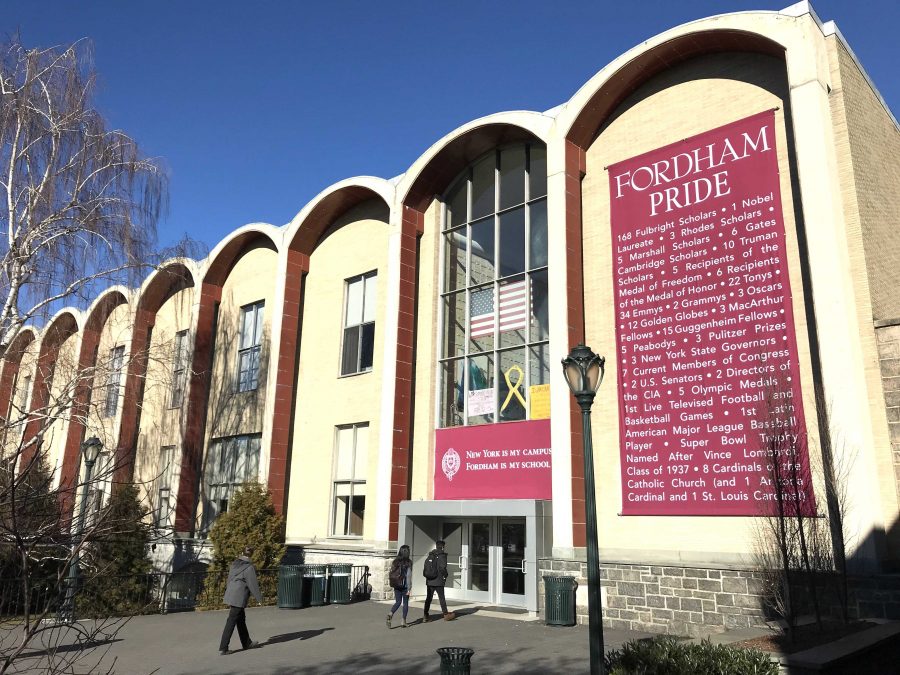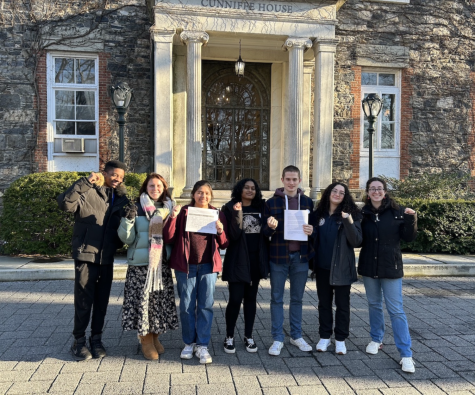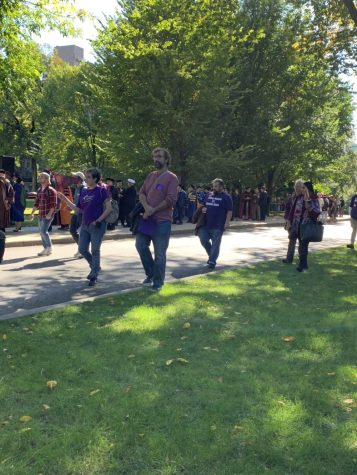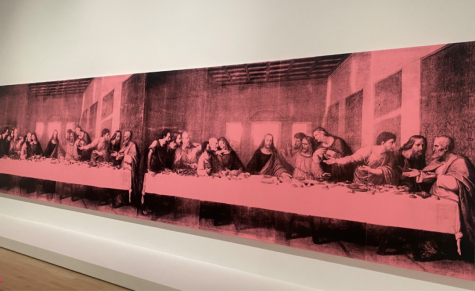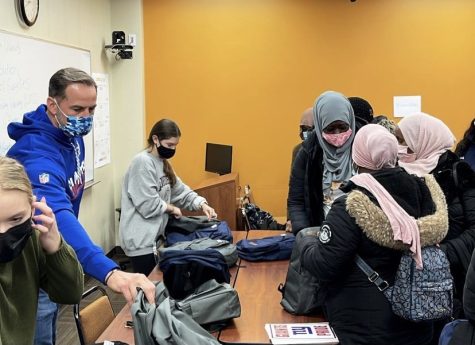Renovations Scheduled for McGinley and Collins
By Joergen Ostensen
Major renovations to McGinley Center are slated to begin following the 2018-19 academic year, according to John Puglisi, Fordham’s assistant vice president of Facilities Management.
Puglisi said the university plans to build an 80,000 square foot extension to the current building. However, he said he expects this to be a multi-year project because McGinley will have to remain open during construction.
McGinley opened in the 1960s and, according to Puglisi, the need for an improvement to the student center has been articulated by members of the Fordham community.
He said the administration has Facilities under the gun to get started.
“I think there’s an appetite for it,” he said. “We’d like for the student center to be a transformative space.”
Part of what may be renovated is the Marketplace and kitchen space. Puglisi said evolving food service norms place an emphasis on separate stations where food is offered, and that the shift is the result of heightened awareness of dietary restrictions and a consumer desire to watch their food as it is prepared.
Renovation of McGinley could make it easier for Aramark to perform well on the Department of Health’s (DOH) food safety inspections, according to Deming Yaun, the university dining contract liaison.
Yaun told The Fordham Ram in August that the aging McGinley has created problems for food safety in the past.
DOH inspections are based on scores that convert to letter grades. Aramark has received 67 consecutive A’s, and Yaun said anything less is unacceptable.
The health inspectors come unannounced, according to Yaun, and assess a grade. However, those original grades do not count, and Aramark has 10 days to rectify any issues.
Yaun said sometimes the non-binding scores force serious improvements to be implemented quickly. According to Yaun, at one point there was too much moisture in a wall of the dishroom in McGinley, forcing the university to build a new wall in the ten days before the health inspector returned.
Yuan said last year mice became an issue in McGinley, as they snuck through cracks to get inside for the winter. According to Yuan, search and seal crews spent weeks working to rectify the problem.
He said the age of the building means this will always be an issue.
“The cracks in McGinley Center are not a fluke situation,” he said.
Puglisi said the planned renovations to the kitchens and the Marketplace did not originate because of health concerns.
“It’s purely a menu-driven type of approach [to renovation],” he said.
Yuan said that keeping the university in compliance with health standards is a responsibility shared by Facilities, Aramark and pest control. He said they take this issue very seriously and try to avoid throwing around blame.
“A grade less than an A is not considered the opportunity to point a finger,” he said.
According to Yuan, food safety has been constantly improving since a particular low point between 2010 and 2012 under Sodexo. Yuan said during that time the building had to be briefly closed due to food safety concerns.
He said one of the reasons for improvement was that Sodexo hired a sanitarian. According to Yaun, Aramark continues to employ a sanitarian because it is important to make sure food safety practices are up to date and prioritized.
“You’re expecting people who are not exactly at the top of the pay scale to adhere to practices that a hospital employee would have to adhere to,” he said.
The current sanitarian, Oluwatoyin Akinfeleye, is responsible for keeping 300 employees’ spirits up with respect to food safety, and making sure they are dedicated to a high level of performance.
While the renovations to McGinley will not likely be completed for several years, Puglisi said the renovations making Collins Hall wheelchair accessible will be started and finished by the end of next semester.
The Ram previously reported that Collins would be wheelchair accessible by the end of 2018. Puglisi said Facilities has the funding for the multi-million dollar project, but that they are trying to work out logistical concerns about where the elevator will go.
“I was hoping that we would be going by now,” he said.
Collins Hall was built in 1904 and is not subject to the Americans for Disabilities Act, which requires buildings to be wheelchair accessible.
However, Puglisi said he thinks it is the responsibility of the university to give everyone an equal opportunity to use the building, regardless of the legal technicality.
“We want to improve the accessibility,” he said. “We need to be able to provide reasonable accommodations.”
Contributed reporting from Sophie Kozub.





































































































































































































